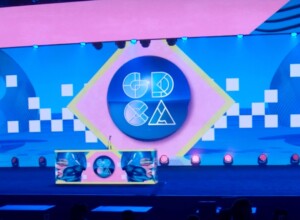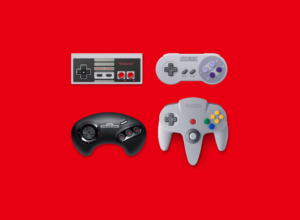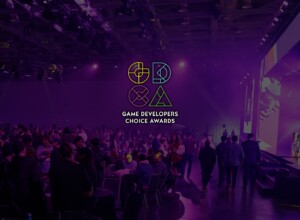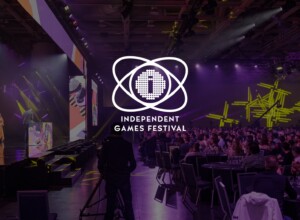As the hype train for E3 2015 leaves the platform we look back at our first visit to the Electronic Entertainment Expo.
It was at E3 2009 that Microsoft unveiled the first iteration of Kinect, then named Project Natal. Nintendo was on the crest of a wave with the Wii and continued investment in motion control appeared a sure bet.
Elsewhere, Sony had their own game-changing hardware on show in the shape of the PSP Go. And plastic peripherals in the shape of instruments and skateboards were lurking in every corner. How things have changed.
So, as thousands prepare to descend on the Los Angeles Convention Center, it feels like an appropriate time to reflect on the first E3 I ever attended.
Covering E3 is a daunting prospect. With so many titles to see and so many PR companies vying for your attention, it’s hard to create and stick to a plan. You must make a judgement on what games will be the most interesting, as well as ensuring that your audience’s expectations are met. It’s a difficult and exhausting balancing act.
Much of the coverage revolves around the major press conferences, although most attendees experience them, along with the rest of the world, through live streams or blogs. In 2009 I recall watching the briefings from my hotel room via the buffering wonders of justin.tv.
Typically you see new games by playing them on the show floor, or by having a private demo. The titles you see by appointment are usually presented by members of the game’s development team. Quite rightly, they’re often very proud of their new products, eager to explain why it matters and why it will advance the medium. It can be hard to disconnect this enthusiasm from the game itself, and although it doesn’t affect your coverage it does mean that you associate some titles directly with the people who made them.
And this makes looking back a bittersweet experience.
A significant number of games I saw at E3 2009 failed to achieve what their developers were aiming for. Many titles either vanished without trace or only garnered a small audience. I recall the promises made by the Splash Damage, developers of multiplayer shooter Brink. They not only wanted to redefine online cooperative play, but also reinvent first person traversal. It’s fair to say that it never quite happened for them.
I also attended a wonderful demo of The Saboteur, a Second World War adventure that appeared to be a franchise in the making. The game was presented by lead designer Tom French and after 30 minutes I was convinced it would be a huge hit. French’s passion for the project and its quirky take on historical events was clear. However, despite The Saboteur achieving many of its goals, it was released with little fanfare and quickly vanished amid grumbles over tacky DLC.
Likewise there was much pomp and circumstance for Realtime Worlds’ APB, a game that has made repeated trips to hell and back ever since. Nonetheless, at E3 2009, the prospect of a modern-day, crime-based MMO was mouth-watering.
And I often think back to the team at NetDevil, who were so excited with their ambitious space MMO, Jumpgate Evolution. That game, despite its potential, never even made it to release.
Memories like these expose E3’s razzle dazzle and reveal the precarious nature of game development. Beneath the showbiz bluster the fate of many games hangs by a thread, and a positive E3 showing is no guarantee of success.
There will be hundreds of new games announced this year. There will be many that don’t make it, and many that excite us now, but will release to apathy. It’s a reminder that the new soon becomes the old, and that the ‘much anticipated’ can easily become the forgotten.
The experience on the show floor is also something to behold. It’s an all-out assault on the senses. A cacophony of noise, colour, sound and movement. A permanent dream state where you constantly feel overwhelmed. It’s also hot, sweaty and often very smelly. But it’s totally exhilarating.
It’s here that you get to play hands-on with the upcoming releases and discuss your opinions with the throng of other attendees. As you flit from booth to booth you overhear the constant chatter of opinion, mutterings of “This game is amazing,” or “You’ve gotta check out Band Hero!” (OK, maybe not that one.)
Nintendo games naturally thrive in this environment, and in 2009 there were long queues for the likes of New Super Mario Bros. Wii and Wii Sports Resort. A reminder of more prosperous times for the Kyoto company. Meanwhile, Microsoft impressed with Forza 3 and Halo ODST. And Sony teased us with a beautiful trailer for the hitherto unreleased, The Last Guardian. A tease that remains six years on.
It was the unexpected titles that ended up making the biggest impression. It’s almost an E3 fable to recount that you were one of the first to stumble across Scribblenauts for the DS, but there I was, on the morning of the first day, watching in awe as every word came to life. Similarly, it was the E3 demo that proved to me that Rocksteady Studios were making something special, with Batman: Arkham Asylum.
Specific games aside, the 2009 event is now a collage of images, feelings and disjointed memories.
E3 2009 was the first and last time I ever held a PSP Go. It was where I met some podcasting heroes at a live recording of Listen Up. It was where I had my picture taken with Charles Martinet, the voice of Mario. It was where I witnessed Steve Wiebe’s unsuccessful Donkey Kong world record attempt. And it was where I humiliated myself with an atrocious public performance of Rock Band: The Beatles.
E3 is a messy, chaotic and grueling experience. But it’s also an event that I would recommend in a heart-beat. There is nothing like seeing these games first, nothing like the rush as the doors open on the first morning, nothing like the smell and the chaos. And, there’s nothing like knowing you were one of the first to play Scribblenauts.












